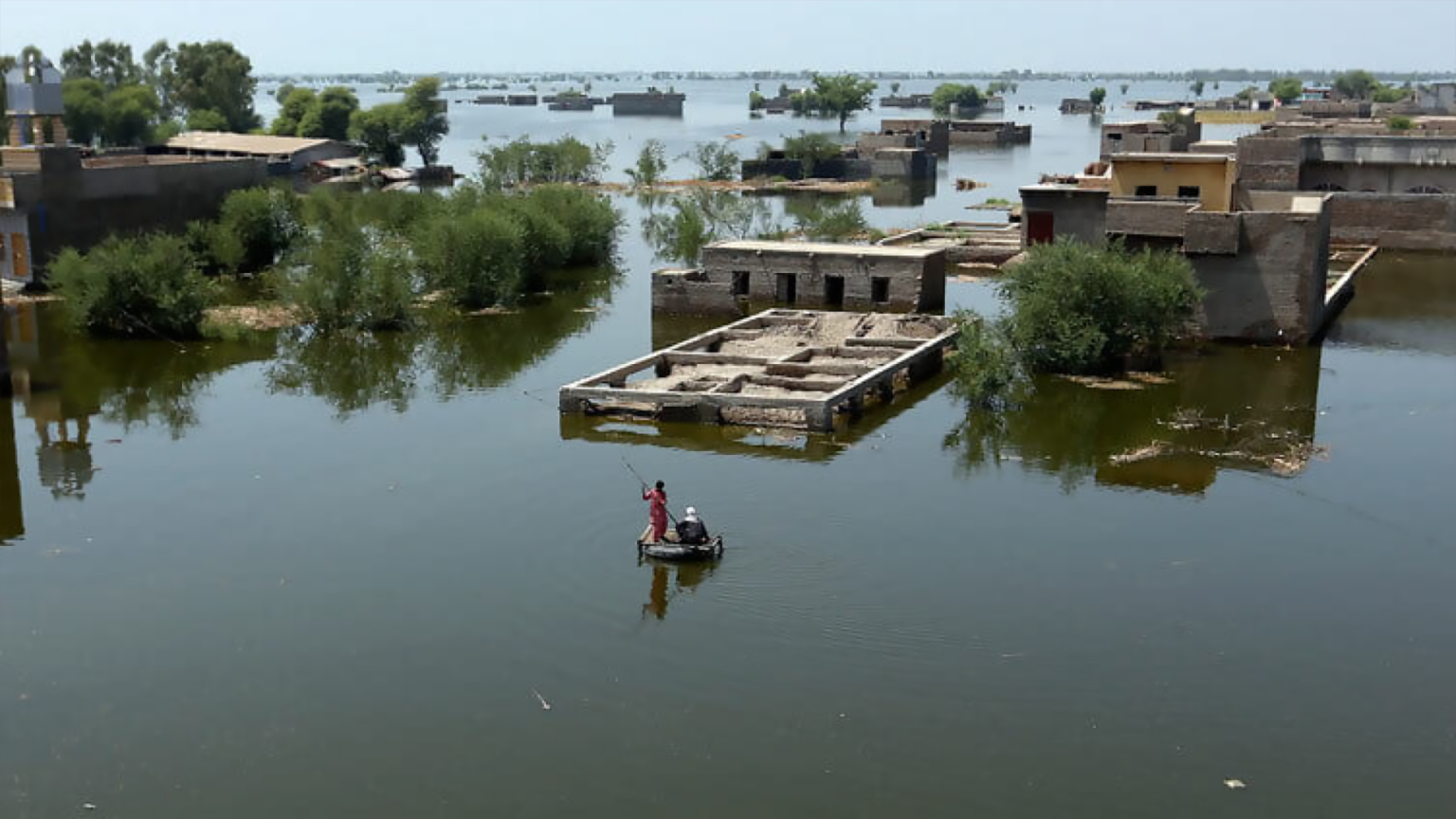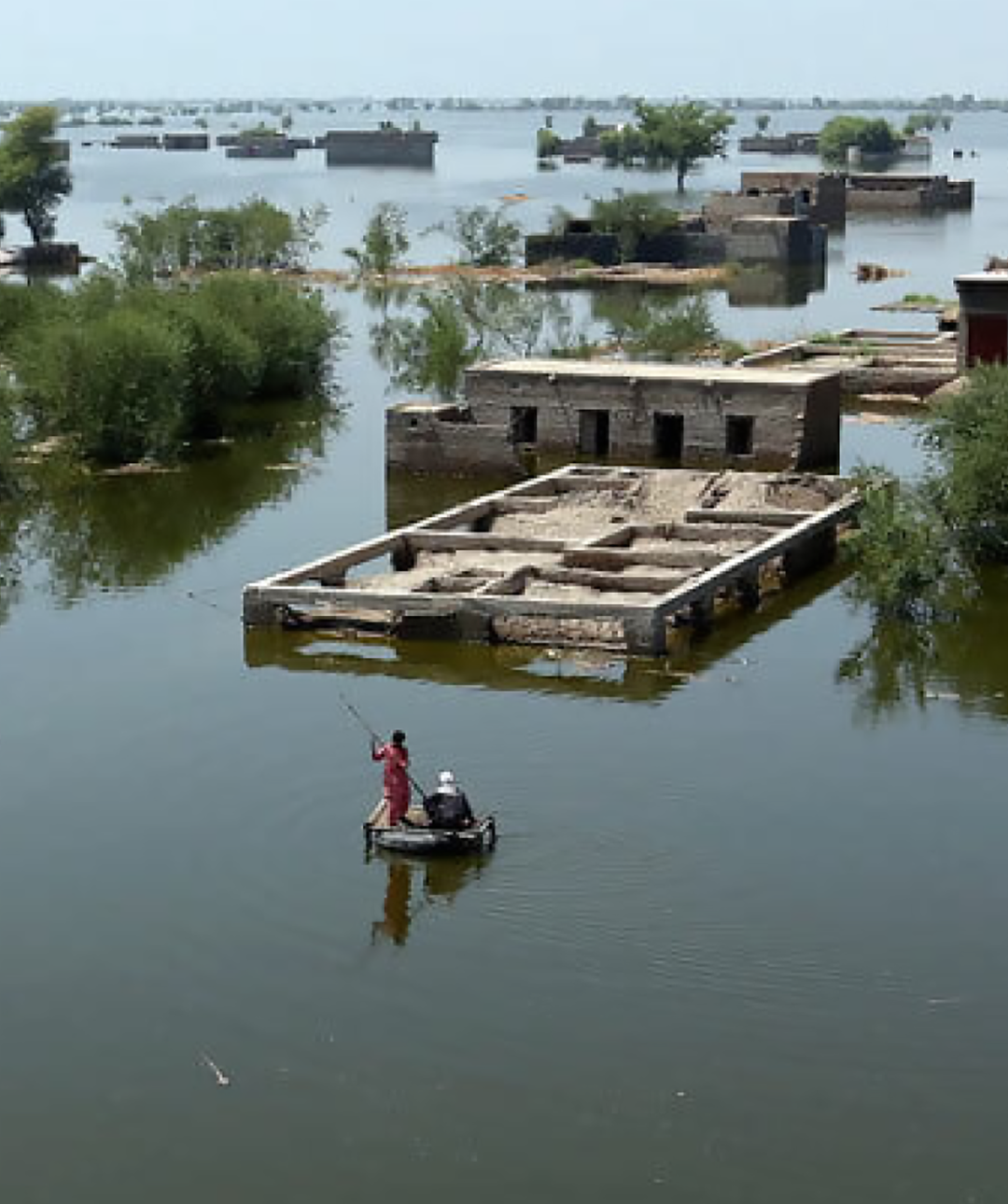

NEW YORK (November 3, 2022) — The Human Rights Foundation (HRF) strongly condemns Pakistan’s ineffective response to the severe floods that have left more than a third of the country underwater. Record-breaking monsoons, torrential rain, and melting glaciers have inundated the Sindh and Punjab provinces. Beyond the destruction of residential and commercial infrastructure, Pakistanis are experiencing immense crop destruction, contaminated drinking water, and various endemic water-borne diseases. With 1,600 fatalities so far and about 32 million people displaced, a state of national emergency was declared in August, yet the government’s subsequent actions have not measured up to the disaster’s severity. Through its research, HRF has found that authoritarianism is at the structural root of a variety of global crises, which includes environmental catastrophes. HRF considers Pakistan a competitive authoritarian regime.
“Though natural disasters are not exclusive to specific regime types, the capacity needed for response and recovery in natural disaster management endeavors are often not found in authoritarian regimes,” said HRF Legal Research Associate Kenza Bouanane. “These gray swan events challenge the integrity, efficacy, and competence of the system they are disrupting. An ineffective and repressive regime, such as Pakistan, will undoubtedly lack the operational and logistical capacity to handle such a calamity.”
Authoritarian regimes are typically more isolated than democratic regimes, and, therefore, oftentimes unwilling to engage in global cooperation that might allow them to better prepare for environmental challenges. Pakistan’s systemic failure to implement any type of sustainable environmental policies due to a lack of domestic pressure and accountability is a grander archetype shared by authoritarian regimes around the world, as there are less official incentives to listen to dissenting voices, build consensus, or take action in matters such as the environment.
In 2017, Pakistan approved a national flood protection plan, but never executed its launch. That same year, the World Bank approved a $200 million credit line to fund flood protection and water management projects in Baluchistan province but later suspended it due to Pakistan’s lack of progress. Furthermore, Pakistan’s National Disaster Management Authority stated that a high-level National Flood Emergency Meeting held in September did not have several key ministers in attendance. Moreover, a dramatic feud between the sitting government and former Prime Minister, Imran Khan, has claimed much of the spotlight in the last few months. In April, Khan was removed from office after a no-confidence vote in parliament and replaced by current Prime Minister Shehbaz Sharif. Since Khan’s removal, there has been a power struggle between him and incumbent leaders, amidst multiple rallies across the country calling for early elections which are currently scheduled for October 2023.
The unbridled power struggle in Pakistan has contributed to an ineffective and delayed official response to the latest disaster. More broadly, this incompetent response is a reminder that authoritarian regimes are typically worst-prepared to tackle emergencies of any kind, such as environmental challenges. Where the state has failed, civil society organizations have been at the forefront of relief and recovery efforts. Unfortunately, in 2010, Pakistan banned several international NGOs, inhibiting relief from outside sources. However, some domestic groups have been able to provide aid, further highlighting the government’s shortcomings.
Ahead of the 2022 UN Climate Change Conference, set to begin this Sunday, November 6th, HRF urges Pakistan to strengthen its environmental management protocols and encourages its prioritization on a global level. The United Nations has allocated around $10 million dollars in relief aid for Pakistan, but Pakistanis are still in need of life-critical support from the international community. HRF calls for urgent and swift international assistance and meaningful state efforts to bolster flood and disaster management, coordinate rescue efforts, and execute a holistic strategy for relief operations in Pakistan.
The Human Rights Foundation (HRF) is a nonpartisan nonprofit organization that promotes and protects human rights globally, with a focus on closed societies.
For all media inquiries or interview requests, please contact [email protected].
Join us in helping save lives and stand up to tyranny.

Reach out with any questions or support needs.
Become part of our mission-driven team.
Find answers to commonly asked questions in our FAQs.
Hit enter to search or ESC to close